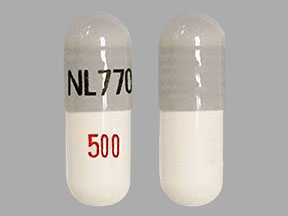Flucytosine Interactions
There are 117 drugs known to interact with flucytosine, along with 4 disease interactions. Of the total drug interactions, 12 are major, 102 are moderate, and 3 are minor.
- View all 117 medications that may interact with flucytosine
- View flucytosine disease interactions (4)
Most frequently checked interactions
View interaction reports for flucytosine and the medicines listed below.
- Ambien (zolpidem)
- AmBisome (amphotericin b liposomal)
- Augmentin (amoxicillin / clavulanate)
- Bactrim (sulfamethoxazole / trimethoprim)
- Cipro (ciprofloxacin)
- Co-trimoxazole (sulfamethoxazole / trimethoprim)
- Coenzyme Q10 (ubiquinone)
- Compazine (prochlorperazine)
- Cymbalta (duloxetine)
- Demerol (meperidine)
- Dilaudid (hydromorphone)
- Excedrin (acetaminophen / aspirin / caffeine)
- Flagyl (metronidazole)
- Flovent HFA (fluticasone)
- Heparin Sodium (heparin)
- Norco (acetaminophen / hydrocodone)
- Nurtec ODT (rimegepant)
- Paracetamol (acetaminophen)
- Retinol (vitamin a topical)
- Rutin (bioflavonoids)
- Sotalol Hydrochloride AF (sotalol)
- Sulfatrim (sulfamethoxazole / trimethoprim)
- Topamax (topiramate)
- Toradol (ketorolac)
- Valium (diazepam)
- Vitamin B1 (thiamine)
- Vitamin B12 (cyanocobalamin)
- Vitamin B6 (pyridoxine)
- Vitamin D3 (cholecalciferol)
- Zometa (zoledronic acid)
Flucytosine disease interactions
There are 4 disease interactions with flucytosine which include:
More about flucytosine
- flucytosine consumer information
- Compare alternatives
- Pricing & coupons
- Drug images
- Side effects
- Dosage information
- During pregnancy
- Drug class: miscellaneous antifungals
- En español
Related treatment guides
Drug Interaction Classification
| Highly clinically significant. Avoid combinations; the risk of the interaction outweighs the benefit. | |
| Moderately clinically significant. Usually avoid combinations; use it only under special circumstances. | |
| Minimally clinically significant. Minimize risk; assess risk and consider an alternative drug, take steps to circumvent the interaction risk and/or institute a monitoring plan. | |
| No interaction information available. |
See also:
Further information
Always consult your healthcare provider to ensure the information displayed on this page applies to your personal circumstances.


